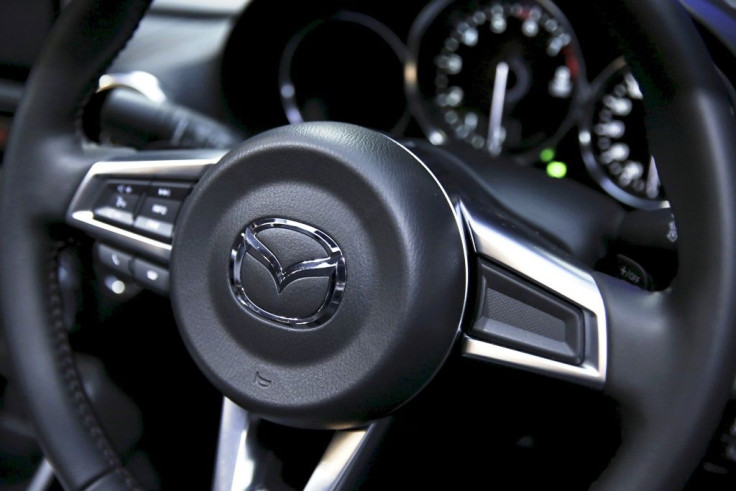Mazda Recall 2017: Full List Of Compact Cars Affected, How To Get Refund For Faulty Seats

Mazda Motor Corp. is recalling nearly 174,000 compact cars in the U.S. over faulty seat belts, the Japanese automaker announced Wednesday. Three models — Mazda3, Mazda2 and Mazdaspeed3 — are affected in the recall.
The seats in the compact cars change angles abruptly, making them difficult to drive, Mazda said in a statement. It also said that the seat height adjustment links are at risk of breaking or detaching from the seat frame, which could lead to alteration in seat angle and increase the risk of a crash.
“On the driver seat, due to insufficient strength of the seat height adjustment lifter link, or incorrect attachment method of the lifter link push nuts, the lifter link may become cracked or the lifter link push nuts may become separated,” the carmaker said.
Dealers will inspect the seat fault and will either install a reinforcement bracket or replace the entire seat adjustment part, according to the Associated Press. However, Mazda’s website stated that customers are eligible for a refund as long as they are able to “present a receipt for the work having been done at an authorized Mazda dealer.” The recall is likely to start on March 31.
A total of 173,859 cars have been affected in the recall and as of Feb. 6, there have been no reports of accidents or injuries due to the fault, Mazda said.
Following is the list of models affected:
- MY 2010-2011 Mazda3 (Produced October 2008 through September 2010)
- MY 2010-2011 Mazdaspeed3 (Produced May 2009 through September 2010)
- MY 2011 Mazda2 (Produced May 2010 through September 2010)
Last September, Mazda recalled over 2 million vehicles across the world over faulty rear gates and computer problems related with certain diesel engines. Prior to that, the carmaker recalled nearly 200,000 of its CX-7 SUV models due to potentially dangerous steering control flaw that could cause ball joint fittings to corrode from salt during the winter months.
© Copyright IBTimes 2024. All rights reserved.












